Illegally Grazed Horses
Advice to horse owners and the public
We sometimes receive reports about abandoned and illegally grazed horses on open spaces in the borough. These are mainly from members of the public that are concerned about their welfare. We receive a lot of reports in the winter when land becomes waterlogged and it is very cold.
We also receive calls from landowners who have had horses abandoned on their land.
We have been working closely with the RSPCA, other animal rescue charities, conservation groups, Kent County Council (KCC) and Kent Police over illegal grazing and welfare concerns.
Complete our online enquiry form to report Horse Grazing.
What is illegal grazing?
Illegal grazing of horses occurs when a horse/horses is/are placed on someone's land without their permission. This happens on both privately owned and public land.
The horses can be tethered on grass verges or may be left to roam on fields or green spaces.
Why is it a problem?
Animal welfare
It can be difficult to initially see the problems associated with illegal grazing. A lot of horses are kept outside all year and manage to cope in winter weather. Horses need access to food, water and shelter (which can be natural or man-made).
Horses have a naturally waterproof coat and they have a central heating system that is fuelled by the food they eat. They also enjoy rolling around, which can make them look muddy and ungroomed in winter.
In summer months they require access to shade, fresh grass and additional food and water. Additional food (for example, hay) should be provided in locations where grazing is poor. An underweight horse can indicate that a horse is not getting enough food.
Older horses, working (ridden) clipped horses and those with health issues are usually rugged. However, not all horses will look rugged. In fact, horses that can cope better in cold temperatures can become too warm if rugged.
Illegally grazed horses may not receive the attention they need when they are injured or ill. These horses can lack the basic need of a good worming programme. If left untreated this can kill horses.
Safety
Sometimes there is a risk of horses straying onto roads. There is a greater risk of this with land that is close to busy roads or residential areas. A car hitting a horse can be fatal for both the driver and the horse.
Horses that feel threatened can kick or bite passers-by when they are approached. There have also been occasions where members of the public have been threatened by horse owners.
Damage to land and conservation areas
Illegally grazed horses can damage the land they are on. In conservation areas they can disturb sensitive ecological habitats.
Where can I find out about horse welfare?
The Department of Environment, Food and Rural Affairs (DEFRA) have produced a code of practice for the welfare of horses, ponies, donkeys and their hybrids. This explains the duty of care for those who are responsible for horses. It gives guidance on how to provide for a horse's needs as laid down by the Animal Welfare Act.
Useful guidance on horse welfare (including welfare conditions) is provided by World Horse Welfare and the British Horse Society.
What to do in an emergency situation?
If it is an emergency situation (e.g. the horse is sick, injured or at immediate risk of danger) then please call the RSPCA hotline on 0300 1234 999. You will need to give as much detail as possible, including the location of the horse and any access issues.
Welfare conditions can also be reported to the World Horse Welfare hotline on 0300 333 6000 and British Horse Society on 02476 840517.
If a horse is loose on the highway and is a danger to traffic then please contact the Police on 999.
We advise using the above methods rather than discussing welfare concerns on social media. Reasons for doing this are:
- The content could be exaggerated or incorrect;
- It could make it more difficult to rescue a horse or pony and any potential action/investigation that may be taking place could be damaged;
- It could give warning to a neglectful or abusive owner that they are due to be visited and it gives them opportunity to remove the animal. This could prevent welfare officers from finding the animal, or the owner could temporarily improve its care;
- It could lead to communication lines between the welfare officers and owners being cut off after a lot of hard work to get them put in place. This could result in access to the animal(s) being lost;
- In some cases photographs or videos do not offer the full picture.
Many of these outcomes would not be in the best interests of the animals involved.
The best approach is to encourage people to contact the relevant agencies so an appropriate investigation can take place. There are processes to follow to ensure appropriate long-term resolutions.
What are we doing to tackle illegal grazing?
We do not allow horses to be illegally grazed on our land. Where a horse is being grazed illegally we will attempt to contact the owner of the horse. Where this is not possible, a notice will be attached near to where they are being grazed requiring the removal of the horse(s).
If they are not moved we will make arrangements to have the horse(s) removed. Once a horse is impounded we will only be able to return it to its owners if a horse passport for the animal is provided.
Do we ever permit grazing on our land?
We do permit grazing on a limited number of public open spaces that are managed as local nature reserves/nature conservation areas. These include:
- Ashford Community Woodland Local Nature Reserve
- Ashford Warren and Hoad's Wood
- Hothfield Heathlands (including Hothfield Common Site of Special Scientific Interest)
Our Conservation Officer will individually permit conservation grazing on these sites. This is carried out in a controlled manner with particularly tough breeds (such as Highland Cattle and Konik ponies). The owners of these animals have to complete necessary risk assessments and have safety procedures in place.
These sites have permanent notices in place warning against illegal grazing. Horses in violation of these warnings can be impounded under Section 41 of the Local Government (Miscellaneous Provisions) Act 1982 with immediate removal. The act is designed to deal with abandoned property left on publicly owned land.
We will remove any illegally grazing horses on our land even if their welfare is not at risk. This is to protect public safety and prevent damage to land and the ecology.
What about illegal grazing on private land?
When a horse is abandoned on privately owned land we will attempt to contact the landowner and make them aware of the situation. We will give advice on how to get the horse removed.
While on the land, the landowner is responsible for the care of the horse even if they have not given permission for them to be on their land. Landowners will also be liable for any accidents or injuries caused by the horses.
Steps to get a horse removed from private land
The Animals Act 1971 as amended by Control of Horses Act 2015 provides several steps that can be followed to get horses removed from your land. These steps include:
- Report the horse(s) that has/have been placed on your land to the Police. This needs to be done within 24 hours;
- Put up an Abandonment Notice [pdf] 168KB(s) on the land advising the owner they have four working days in which to remove their horse(s). This notice also gives others the opportunity to pass on any information they have on the owner of the horse(s);
- If nobody comes forward after four working days the landowner can arrange for the horse(s) to be removed (there are a number of horse rescue charities and re-homing organisations that are able to give advice on this).
For advice on how to prevent fly-grazing and horse abandonment, as well as advice on how to deal with a horse on your land, please visit the Redwings Sanctuary website. This includes what you should do if an owner does come forward.
What to do if you find a dead horse?
If you come across an abandoned dead horse on private land you should contact KCC Trading Standards. Out-of-hours you will need to telephone their contact centre on 03000 41 41 41.
If the horse in on the highway then contact KCC Highways and Transportation on 03000 41 41 41.
If the horse is on council-owned land then contact us.






